-
Tips for Repairing a Leak Under Your Sink
What you can’t see can’t hurt you. The problem is, once you do see the problem, it’s usually a problem that needs to be fixed right away. This is certainly true for plumbing problems. Pipes aren’t traditionally exposed in your home, so you can’t see the small leaks, the corrosion of the pipes, or a clogged pipe. When water does appear, the problem becomes immediate. One of the most common places there are plumbing issues is at your sink; whether it be your kitchen, bathroom, or utility room sink. Luckily, leaky sinks aren’t complicated to fix.
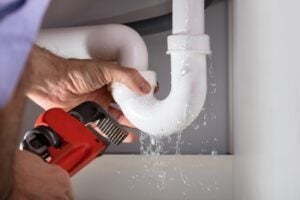 Tips for Repairing the Leak
Tips for Repairing the LeakWhen you see water on your floor coming out of your pipes you know that there is an issue with your plumbing, but here are some signs that you have a water leak when you don’t see water: water bills are higher than normal; water meter moves when water is turned off at each faucet; running toilets; spongy, soft, discolored walls; musty smell around floor and/or walls; or mildew present on walls, floor, and/or ceiling. Knowing what causes a leak under your sink can help you know how to fix it. Three of the most common reasons for a leaky sink are dirty parts, worn parts, and/or damaged parts.
Root Cause and Treatment Action
If you can’t visibly see where water is leaking from you will need to determine where the sink is leaking before being able to fix it. Identify the leak by checking the following areas of your sink and water flow:
- Drain Seal: A leaky drain seal is easy to identify when the sink cannot hold water without it dripping. Run water into your sink and then allow it to drain. If the water leaks while the sink is draining, your drain seal needs to be repaired. To repair a drain seal you have to purchase a new one and install it remembering to apply new adhesive around the bare drain.
- Sink Faucet: Leaks at the faucet level won’t be a cause for concern in the area of damage, but it is one of the main sources of water being wasted. If you notice water leaking from the top of the sink when the faucet is turned on, your faucet is leaking. To fix a leaky faucet, tighten or replace the washer in the faucet.
- Water Supply: A water supply leak usually isn’t discovered until there is water gushing out from under the sink potentially causing serious water damage. To know if your water supply is leaking, plug the drain of the sink. If a leak appears under the sink while the water is running out your water supply is leaking. To fix a water supply leak find the joint that water is emerging from and tighten the joint. If this doesn’t stop the leak, call a local plumber.
- Sink Drain: Detecting a leak coming from your sink drain is not always easy to find because the leak usually occurs directly below the drain opening. A leaking sink drain is detected when there is a presence of discoloration due to rust and mineral build-up.
- Shut-Off Valves: The shut-off valve does what its name describes: shutting off or allowing water through the line. A leak is detected at the shut-off valve when the water cannot be closed off through the pipe. If the shut-off valve is screwed on it can easily be replaced, but you will need to call a plumber if a compression fitting is used.
- Water Hose: A leak from a water hose is detected when water comes out of the connection between the hose and the faucet. Tighten the connection between the hose and the faucet to fix the leak. If that doesn’t work, replace the gasket on the faucet and/or the hose.
- P-Trap: The P-trap begins to leak when debris and food is trapped in the P-trap and water backs up and is forced out the P-trap. To fix a leak in your P-trap, remove the P-trap, clean it out, and ensure there is no clog. Your P-trap may also leak because there is a hole in the actual pipe. If this occurs, you will need to replace the entire P-trap.
- O-Ring, Washers, and Valve Seat: Your sink has several connecting points where O-rings, washers, and valve seats keep water flowing in the correct direction and from leaking out of the pipes. To find if each of these are the cause for the leak, each joint will need to be opened and visually inspect the O-ring, washer, or valve seat.
If you need further assistance with your sink repair, or any other plumbing issues, and you live in the Jacksonville, FL area, contact Eagerton Plumbing Co. at 904.638.7979 or online. We have been in business since 1954 and are a trusted plumbing business in the Jacksonville area.
-
See How Much Water Is Wasted by a Leaky Faucet
Leaks in your sewer or hot water heater near Jacksonville can cause serious plumbing problems for your home or business. However, the slow drip from your faucet isn’t good for your plumbing system or your wallet either. The periodic dripping sound is torture to some people, which is one reason it’s best to have a professional plumber take a look . Watch this video and see how much water is wasted by a leaky faucet.
If you turn your faucet all the way off and yet drops of water still drip out on a regular basis, you’re going to continue losing water until the problem is solved. It doesn’t take long for this waste to add up, and you could lose as much as 100 liters of water in a single month, just from a single leaky faucet. You’re still paying for the water you waste, so take care of the leak quickly.
-
What Is a Slab Leak?
While you may be all-too familiar with the types of plumbing leaks that can occur in the appliances and pipes that are located on the main floors of your home, it is also important to be aware of the dangers of hidden leaks throughout your plumbing system. A slab leak is a serious plumbing repair emergency that requires immediate attention from a plumber serving Jacksonville . By keeping an eye out for the signs of a slab leak in your home, you can schedule prompt slab leak repair, before the problem gets serious.
A slab leak is categorized as any type of plumbing leak that occurs underneath the slab foundation of your home. Before your home’s foundation was created, your contractors probably placed a series of hot and cold water pipes beneath its surface. If you start to notice water damage seeping up from the bottom levels of your basement, this could indicate a slab leak. Slab leaks can also cause unusual hot spots throughout the floors of your home.
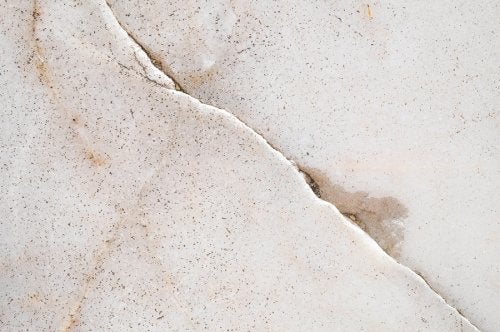
-
Spotlight on Water-Efficient Plumbing Fixtures
If you want to make your house more environmentally friendly, you may want to start by performing a kitchen or bathroom remodel. When you work with a plumber to install new, low flow fixtures and an energy efficient water heater, you can cut down on your household’s water use. A plumber that offers expert plumbing repair in Jacksonville can help you pick out the perfect water-saving fixtures for your entire household. Let’s take a look at some water-efficient plumbing fixtures that you may want to consider installing in your home.
Low Flow Showerheads
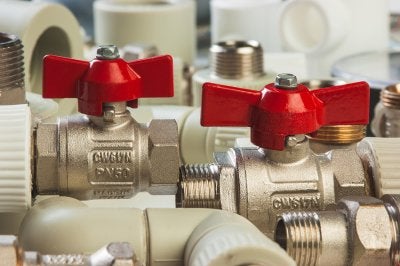
When you are shopping for water-efficient plumbing fixtures for your home, you may want to start by considering low flow showerheads. An average showerhead can consume dozens of gallons of water during every use. When you switch your traditional showerheads over to low flow models, you can save on your water usage while still enjoying terrific water pressure. Today’s low flow showerheads are specifically engineered to maximize comfort and energy savings in the home.High Efficiency Toilets
You may be surprised to learn that your home’s toilet is another major source of water consumption in your household. If you want to cut back on the amount of water that your home uses every day, it is a terrific idea to install a new, high efficiency toilet. A high efficiency toilet will use up to five less gallons per flush. By multiplying this amount by the number of times that you flush your toilet every day, you can determine how many dozens of gallons of water will be saved by this upgrade.
Water Conserving Appliances
You can also consider swapping out your outdated appliances, such as your dishwasher and washing machine, with units that are specifically engineered to deliver the best possible efficiency. A qualified plumber can help you pick out brand new appliances that use much less water, every time they are put to use. You may also notice that your new dishwasher is able to clean your dishes more effectively than your old unit.
-
Surprising Facts About Leaky Faucets
Leaking toilets, pipes, and faucets are common sources of wasted water. If you think that you may need water line repair, call a plumber serving Jacksonville as soon as possible so you can prevent more damage and reduce your water usage. Watch this video to learn surprising facts about leaky faucets that your plumber can explain.
A problem as small as a leaky faucet may not cause you to think twice, but if it drips just once per second, it could end up wasting you 113 gallons of water per month. Luckily, leaky faucets often require only a simple and inexpensive repair. Call your local hardware store or plumber to learn how you can fix your faucet problem or sewer issue.
-
Keeping Calcium Off Your Faucets
Over time, calcium deposits will build up on your faucets, causing plumbing problems and necessitating plumbing repairs near Jacksonville . You can reduce your need for frequent plumbing repairs by preventing calcium buildup from occurring in the first place. For instance, your plumber can install a water softener to reduce the natural minerals present in your water supply.
Watch this video for some great tips for keeping calcium off of your water faucets. A calcium buildup can cause low water pressure, damaged water appliances, and water leaks. If you have a minor calcium buildup, you can soak your faucet aerator in white vinegar for one to three days. For extreme calcium buildups, a plumber may recommend that you use muriatic acid to clean off the calcium deposits. Once you and your plumber remove the calcium deposits, your faucets will produce a much stronger water flow.
-
Finding Solutions for Low Water Pressure Issues
If you are experiencing low water pressure issues in your home, you should contact a plumber near Jacksonville for plumbing repairs. Low water pressure can be the result of a number of plumbing issues, ranging from simple to complex. Here is a look at some solutions and plumbing repairs for low water pressure issues.
Call a plumber for water leak and slab leak repairs.

If the water pipes that service your home are cracked or damaged, you may experience water leaks or slab leaks. Water leaks prevent all of the water from making its way to your faucet or showerhead, which often results in low water pressure. A plumber can perform a thorough leak inspection of the water pipes throughout your home. He can then perform quick, expert water leak or slab leak repair, or water line repair as necessary. Your water bills will decrease, and your home’s water pressure will increase.Check your home’s water valves.
If you or a plumber has turned the water valves in your home off and on at some point, you should check the valves to ensure they are fully opened. If a water valve is only partially open, the water pressure in your home may be affected. A damaged or faulty water valve can also cause progressive problems with water pressure throughout your home. If you aren’t sure if you have a water valve problem, contact a residential plumber for an inspection. A simple plumbing repair can instantly improve your home’s water pressure.
Clean or replace your faucet or showerhead.
Over time, mineral deposits may build up in your faucet aerators or in the holes of your showerhead. This prevents a strong flow of water from exiting the faucet or showerhead, and may result in low water pressure. You can clean your faucet aerators by removing them and soaking them in white vinegar for a few hours. You can also replace your showerhead with a high-pressure showerhead, or clean the mineral deposits off of the showerhead using white vinegar.
-
Signs You Should Replace Your Plumbing
The plumbing pipes in your home are designed to last for a long time, but they will not last forever. If you fail to replace them once they begin to corrode, decay, and rust, you are asking for trouble. To avoid major plumbing problems, you should look out for signs that indicate that it’s time to replace your plumbing and contact a plumber as soon as you start to see them. You should consider hiring plumbers in Jacksonville to install new plumbing if you notice any of the signs below.
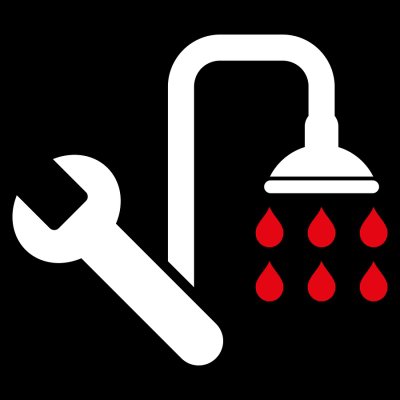
You have plumbing pipes that look like they are corroding.
If you own a home that is more than 50 years old, you should get into the habit of going down into your basement or crawlspace to inspect the condition of the outside of your plumbing pipes. When pipes get old, they will start to get discolored and look like they are falling apart. If they look bad on the outside, they probably look bad on the inside, too. You should have a plumber come and inspect them for you.
You are doing plumbing repairs very frequently.
Are you calling on a plumber every few months to come to your home to fix a leak? It may just be a coincidence, but the need for frequent plumbing repair is another strong indication that you may need to have your plumbing replaced. As plumbing pipes get older, they will begin to leak more and more, and it may be more cost effective for you to install new plumbing than to continue paying for services like water line repair.
You know that your plumbing is old and nearing the end of its lifespan.
By finding out what kind of plumbing pipes you have in your home, you can figure out how long they should last you. Brass, copper, cast iron, and galvanized steel pipes will last between 70 and 100 years, while PVC drain lines will last between 25 and 40 years. Figure out how long your pipes are designed to last and replace them accordingly.
-
Choosing the Best Plumbing Pipe
If you’re planning a kitchen or bathroom remodel, or you need to have old plumbing pipes replaced, you want to be sure that the job goes smoothly and that it’s done properly. There are many options for homeowners when it comes to plumbing pipe such as copper, PVC (polyvinyl chloride), or PEX (crosslinked, high-density polyethylene).
When it’s time to make a decision, consult with a licensed and experienced plumber serving Jacksonville who specializes in plumbing repair, sewer and drain line installation, and kitchen and bathroom renovation. Check out this video to learn more about what your choices are regarding plumbing for your home.
-
Problems with Sewer Lines
You rely on your home’s sewer lines on a daily basis. That’s because they’re the means by which wastewater is carried from your drains, through your plumbing pipes, and to your municipal sewer system. So when there’s something wrong with your sewer in Jacksonville , like a leaky pipe, you need to contact a reputable plumber as soon as possible.
Causes of Damaged Sewer Lines
There are many things that can cause sewer problems. For example, invasive roots from large trees on your property can damage your sewer lines. If this is the case, your sewer lines need to be replaced immediately—you may also have to remove the offending trees to ensure that their roots won’t damage your new lines. Solidified grease or waste buildup can clog your drain and sewer lines, and cause wastewater to back up into your home, creating an unsanitary condition. Clogged sewer lines need to be cleared an experienced plumber who has the knowledge and the right tools to do the job properly.
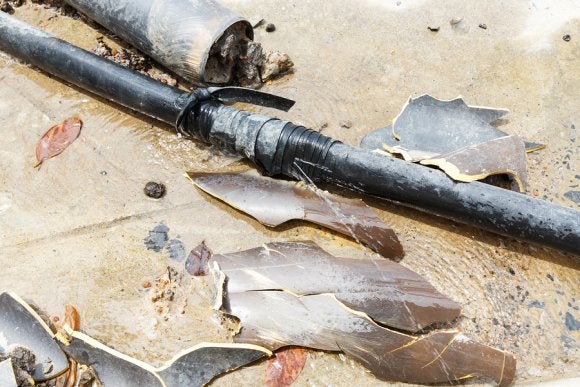
RECENT POSTS
categories
- Uncategorized
- Water Heater Installation
- Tankless Water Heater
- Plumbing Services
- Bathroom Remodeling
- Hot Water Heater
- Plumber in Jacksonville
- Water Heater Repair
- Eagerton Plumbing
- Eco-Friendly Plumbing Repair
- Water Damage
- Plumbing Leak
- Sewer Line Repair
- Infographic
- Clogged Drains
- Kitchen and Bathroom Remodel
- Bathroom Plumbing
- Residential Plumbing Services
- Garbage Disposal
- Toilet Repair
- Water Heater Replacement
- Water Conservation
- Emergency Plumbing
- Commercial Plumbing Services
- Kitchen Design Inspiration
- Kitchen Remodel
- low-flow toilets
- Leaky Faucet
- Conserve Water
- Drain Pipes
- Kitchen Sinks
- Vessel Sink
- Plumbing Problems
- Water Leak
- Commercial Remodeling Contractors
- Drain Cleaning Services
